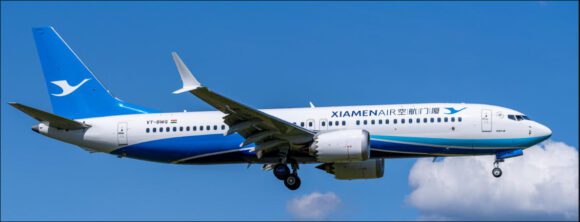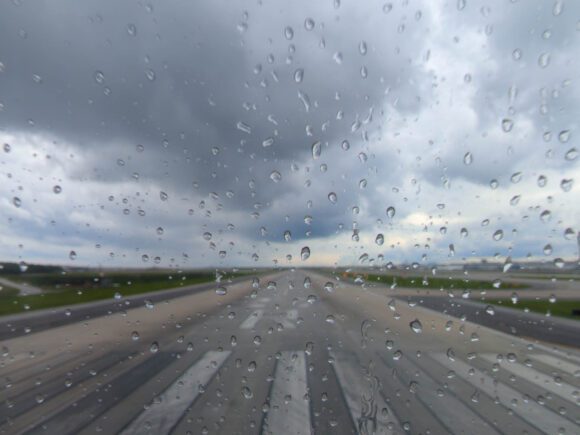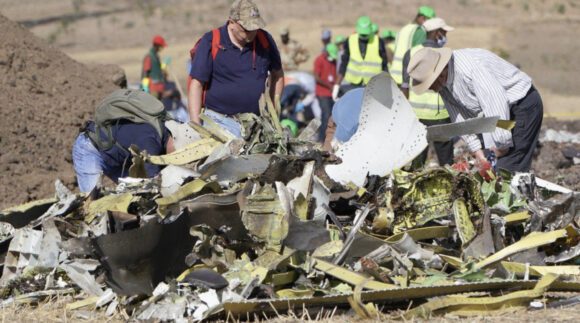
MAX parking
Boeing’s MAX faces challenges again. The program is a cause of ongoing concern to both the OEM and its lessor and airline customers. The 737 remains the most successful jet program and has built a strong following. The 737 has been the typical aircraft LCCs deploy because it is robust and, through the NG, demonstrated remarkable reliability. The MAX has diminished the 737’s and Boeing’s reputation.
Here’s the latest FAA AD
- Undelivered MAXs, produced from early 2019, need to be inspected
- The FAA estimates 33 hours per fix
- There are 109 delivered MAXs needing inspections and fixing plus another ~350 undelivered MAXs
- CFO Greg Smith recently stated: “You may also recall right before the 737 MAX returned to service we estimated that around half of the approximate 450 aircraft we had in storage would be delivered by the end of 2021 and the majority of the remaining by the end of the following year. That estimate is unchanged.”
Key MAX customers have remained with the program. While there have been cancellations, many of these are more a reflection of the customer’s response to the market rather than an inherent MAX issue. Among strong customers, like Southwest, Alaska, and United, plus other follow-up orders have come in. The big airlines undertake careful analysis and their orders are an endorsement.
The strategic perspective
The scale of the challenge Boeing faces should also be viewed from a strategic perspective. In the other part of the industry duopoly, Airbus is already talking about production increases. The industry supply chain was under tremendous production pressure through 2019. Then came the great reset of 2020. That reset saw several supply chain firms collapse. Things remain difficult for the supply chain. As a long-term business, where expensive capital investments need to be undertaken to support production lines that are expected to run for up to two decades, the pandemic was a shock that few firms were large enough to overcome. From a strategic standpoint, the duopoly must return to near equilibrium. The duopoly being out of equilibrium is as dangerous for both OEMs.
Back to Boeing’s MAX challenges. Even as Boeing fixes the parked MAXs, it is also producing the aircraft at slow rates to provide its supply chain some support. Any new “issue” uncovered on the MAX means repairs are added to the fleet needing fixes and also has to be implemented at the Renton FAL. The work needs FAA-certified people. We understand that this work can be accomplished by customers using their own certified people. Boeing has said it will ensure all MAX deliveries are compliant with certification requirements.
Time is of the essence
Boeing needs two important items to recover from these upsets. The first is a rapid economic and travel recovery. The second is time. A key driver to travel recovery is vaccination rates. These are spotty because so many governments are inefficient and reacting with poor public policies. That means international travel is stymied. If international travel remains closed, then global travel cannot recover. There are few domestic travel markets large enough to support an internal travel economy. Public policy will remain wobbly because elections occur around the world haphazardly. Nothing focuses politicians and their public policies better than an election. The reaction to the pandemic and vaccination rates are likely to remain messy. All of this will take time, which could help Boeing. Boeing needs time to get its internal issues fixed.
The role of US customers
Perhaps this is why we see Boeing focus its MAX attention on US airlines. The US travel market is large and mature, plus US vaccination rates are accelerating. Much of the US travel economy can recover from domestic travel alone. Boeing’s US customers are crucial to its own recovery. It does not help that the US airline industry is now consolidated. But this underscores just how critical the recent Southwest MAX order really was. Losing that order would have been a catastrophe for Boeing. No doubt Southwest also knew this, and the deal was made at commensurate prices.
Talent and peace
As Boeing shores up its US customer base, it buys time to fix the nagging internal quality control issues that have beset the MAX and other programs. The US airlines need a strong Boeing. Indeed, the entire commercial aviation business needs Boeing to recover as quickly as possible. An unstable duopoly is a threat to the entire industry. (We haven’t seen how the current unstable duopoly in the regional jet industry will play out yet.) For Boeing to ensure it best exploits the time it can squeeze out of these circumstances requires peaceful labor relations and this has been a challenge for Boeing.
The MAX crisis exposed all sorts of fault lines at Boeing. They can be fixed with the right mix of talent and time. The entire industry hopes they have both. Since time is in short supply, Boeing’s talent will have to compensate.
Views: 5




